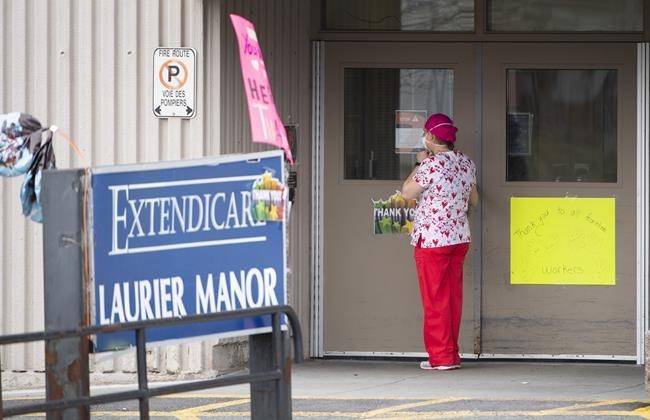TORONTO — Ontario's Ministry of Long-Term Care needs to ensure in-person inspections of nursing homes can take place in a future pandemic and that inspectors can immediately act when residents are at risk of ongoing serious harm, the province's ombudsman said Thursday.
A report by Paul Dube on the inspection regime for long-term care homes during the pandemic found shortcomings in "nearly ever aspect" of the inspection branch's processes when COVID-19 hit.
"The ministry had no plan or guidelines for how to do inspections during a pandemic, so none were done for seven weeks, even as reports of outbreaks and health risks to residents and staff inside the homes poured in," Dube said Thursday.
"Inspectors did not have access to personal protective equipment or training in infection prevention and control."
Dube said his investigation found many instances in which inspectors were deployed to "support" homes rather than enforce compliance with legislation and sometimes gave homes reduced penalties.
"Homes were given many months to fix significant issues that posed a serious risk of harm to residents and the action taken was often documented in confusing or poorly written reports," he said.
"The direct result of the lack of inspections, reports and enforcement was a lack of protection for residents and staff and a lack of accountability for the system."
The ombudsman's office received 269 complaints and inquiries from families of long-term care residents, employees and others in the sector, and his report includes anonymized cases of families pleading for help.
In one case, a person the ombudsman dubbed Peter complained to the ministry four times between April 6 and May 5, 2020, about "disturbing" conditions in his mother's long-term care home, but his concerns were not inspected until October, several months after his mother had died from COVID-19.
"In total, 53 residents died at that same long-term care home during the first wave," the report said.
Dube's 76 recommendations include urging the ministry to ensure it always has staff available for in-person inspections, providing inspectors with adequate supplies of personal protective equipment, and ensuring it inspects any complaint that alleges a resident is at significant risk of harm, instead of conducting “inquiries.”
The ministry said it accepts all of the recommendations and has already fully or partially implemented more than half of them, including doubling the number of inspectors.
"COVID-19 was an unprecedented global event with devastating impacts on long-term care homes around the world," new Long-Term Care Minister Stan Cho wrote in a statement.
"The lessons learned from this have ensured we take action by creating a new investigations unit that can refer charges when necessary and introducing new monetary penalties for bad actors."
This report by The Canadian Press was first published Sept. 7, 2023.
Allison Jones, The Canadian Press

